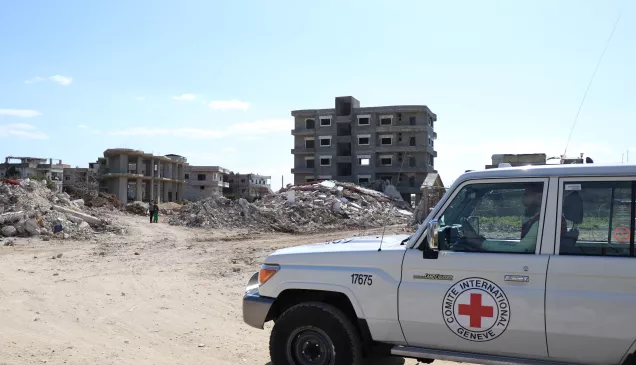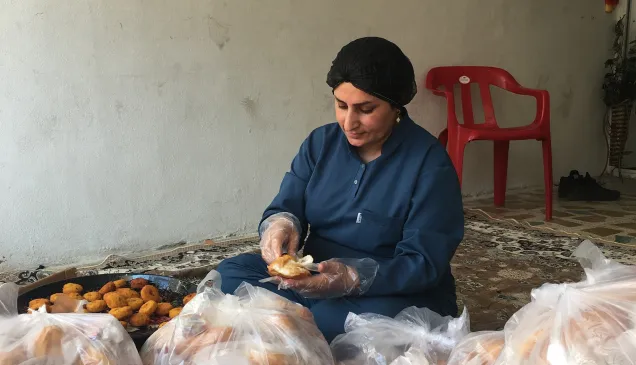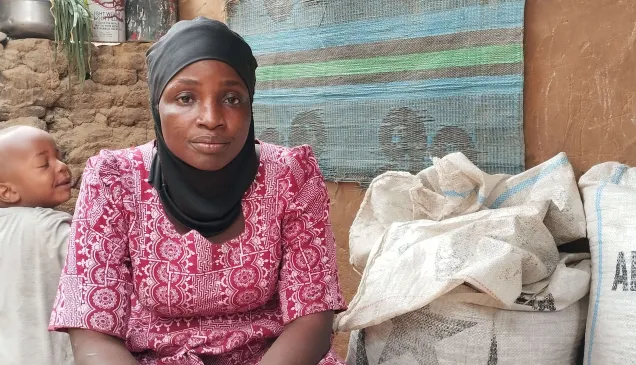COVID-19: Timely support for people with disabilities
In just four years, Eldi Ampaso, a 30-year-old vendor, has experienced two life-altering situations. She was permanently injured in the 2016 explosion at the Roxas Night Market in Davao City. Now, she finds herself in the middle of a pandemic which has put everyone’s life on hold.
But neither situation has dampened Eldi’s resolve to earn a living. Because of COVID-19 quarantine restrictions, she had to switch gears quickly: From selling boiled sweet-corn cobs on the street, Eldi now sells beauty products and ready-to-wear clothes through her online shop.
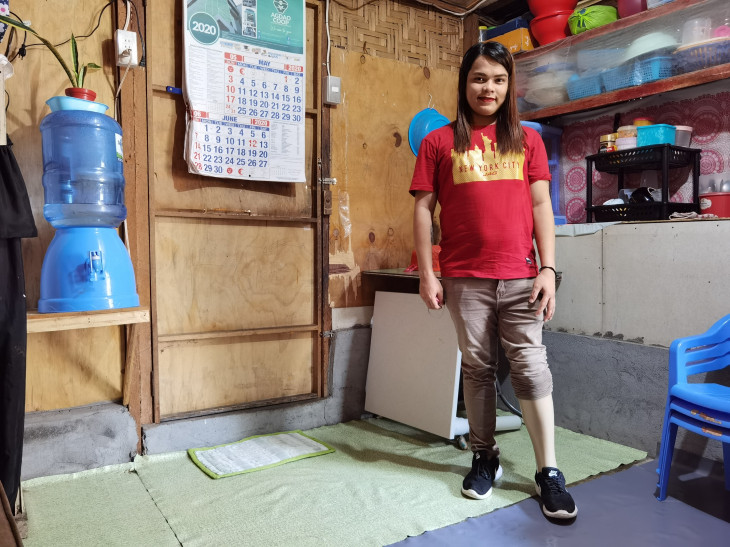
Eldi Ampaso, 30, survived the Roxas Night Market bombing but lost her lower left leg. She had to stop working as a snack vendor due to COVID-19 restrictions. Ryan ANG/ICRC
Although Eldi can run a business from her home in Davao City, she felt more financially secure before the pandemic. She earned more money from selling snacks and she didn't have to wait long to restock her supplies. As a person with disability (PWD), being stuck indoors has affected Eldi's health. "I put on some extra pounds because I can't go out of the house and do exercises, unlike before when I could go out freely and do outdoor activities," she shared.
Like Eldi, vendor Nida Budlaw of Cotabato City became a victim of an explosion. She was selling snacks when an IED exploded at a bus terminal in 2006. At 63, Nida wants to continue earning money during the COVID-19 lockdown, but an open wound on her leg hampered her movements. The local government also restricted senior citizens like her from going outside their homes. Nida dreams of selling things the old-fashioned way by opening a sari-sari store that can provide essential goods to her community.
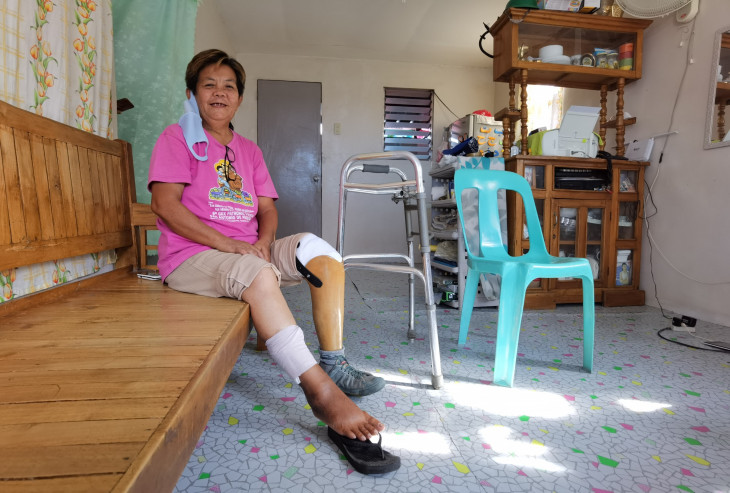
Nida Budlaw wants to open a sari-sari store, but a painful leg wound and the present COVID-19 restrictions have impeded her movements. Ryan ANG/ICRC
From being busy most days of the week, the two women spend most of their time at home doing household chores and caring for their families. While the COVID-19 lockdown has given them a breather, they worry from time to time about their uncertain future. "I will always find ways to earn a living but after the bombing that caused my disability and the restrictions being imposed now, I feel disappointed that I can no longer do the things I wanted to do," Nida said.
People with disabilities were hit doubly hard by the COVID-19 pandemic due to the movement restrictions and the resulting economic downturn. But even before the health crisis, many PWDs experienced socio-economic disadvantages due to limited livelihood opportunities and workplace discrimination. At the Davao Jubilee Foundation (DJF), the centre that provided physical rehabilitation services to Eldi and Nida through the International Committee of the Red Cross (ICRC)'s support, many of the PWD patients rely on their families for financial support.
"Due to the widespread socio-economic impacts of the COVID-19 pandemic, even the usual support systems of PWDs are struggling to make ends meet. On top of these livelihood challenges, PWDs face many other challenges in the community including chronic illnesses are especially vulnerable to COVID-19," said Teresia Nyutu, head of the ICRC's economic security team in the Philippines.
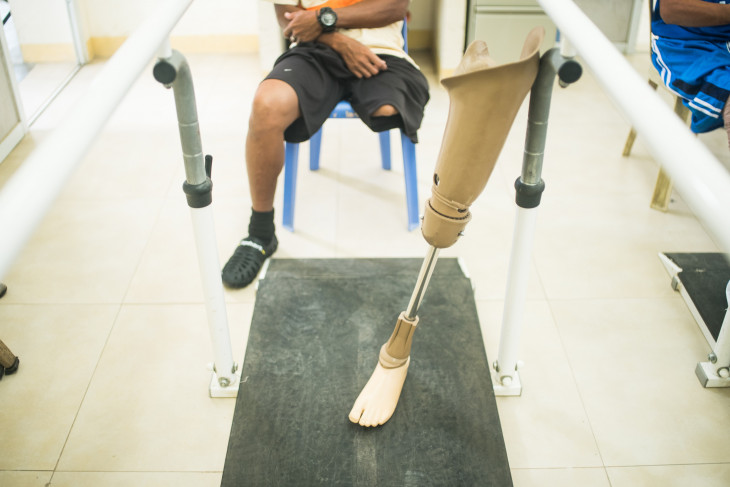
The ICRC has been supporting the Davao Jubilee Foundation (DJF) for over a decade. Throughout the years, the ICRC assisted the DJF in improving its facilities and services for PWDs, and provided technical training to its staff. The ICRC helps people permanently disabled by conflicts or other violence, with their rehabilitation at DJF, to help them regain their mobility. Vee SALAZAR/ICRC
With the DJF, the ICRC, a humanitarian organization that assists victims of armed conflicts, provided unconditional cash grants to 189 patients with lower limb disability and their families from May to June 2020. These one-off cash grants served as emergency financial assistance that enabled PWDs and their families to meet immediate needs like food, medicine or other household needs as per the family needs. Eldi used the money she received to buy some clothes and food for herself and her family. Nida, on the other hand, purchased rice and medicine for her leg wound.
COVID-19 has suddenly changed their lives, but Eldi and Nida remain hopeful that they can continue supporting themselves and reaching for their goals once the situation improves. "It seems time has slowed down, and as if a year has passed. We are all stressed but we need to move on and keep fighting," Eldi said.

